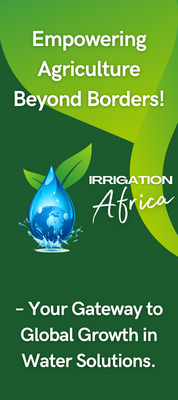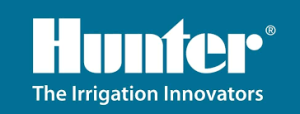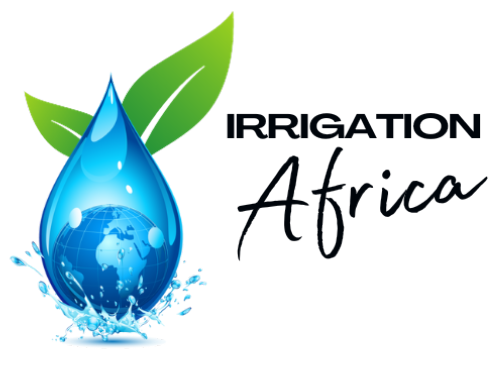Category
Recent Posts
- IWMI appoints Olufunke Cofie as new Africa Director for Research Impact
- IWMI tackles water scarcity in Punjab with groundbreaking GMIS
- Cutting-edge mapping techniques are crucial for managing water storage in South Asia
- [Explainer] What is micro irrigation?
- What the attempts to clean the Seine reveal about water pollution worldwide
Recent Comments

The Ultimate Weed Control Solution

Brands









South Africa’s National Treasury has provided a full update on the country’s planned public-private partnerships (PPP) projects in its 2024 budget review document.
According to the report, there are currently 15 PPP projects at the inception phase and 19 projects at the feasibility study phase. Feasibility studies have been completed for six schemes and 10 are ready to start the procurement process.
The government wants to increase the use of PPPs for infrastructure delivery to reduce the financial burden on the treasury. It is currently in the process of amending the country’s PPP regulatory framework to provide two pathways – one for high-value projects and a simplified version for low-value projects – to incentivise the uptake of PPP projects.
“Government seeks to facilitate a shift in the quantity and quality of infrastructure delivery by mobilising private sector financing and technical expertise at scale,” the document states. “Over the past decade, weak growth, rising spending pressures, inefficient delivery and the financial support provided to state-owned companies have constrained [the] government’s ability to invest in new infrastructure.”
It adds that reforms are underway to strengthen public investment management including pooling resources with the private sector in blended finance initiatives aimed at funding and implementing infrastructure projects more effectively. It reveals that the government intends to consolidate the preparation and planning for large PPP projects into a single entity.
During 2024/25, the government will establish an infrastructure finance and implementation support agency to coordinate the planning and preparation of large projects, engaging directly with private financial institutions. The agency will incorporate the functions of project preparation, PPP technical support and data management. Departments, public entities and municipalities will be able to use its services to prepare, plan and execute PPP projects.
Efforts are also being directed to improve the operations of the Infrastructure Fund, enhancing infrastructure monitoring and reporting, and building a strong project pipeline.
The Infrastructure Fund’s mandate is to maximise the cost-effective participation of private sector investors in government projects while facilitating early financial closure. To date, it has assisted in packaging and financing 14 blended finance projects and programmes, which are summarised in the table below. It is working on 10 further projects and anticipates attracting private financing to the value of Rand 25.9 billion (US$1.4 billion).
Regarding the uMkhomazi water augmentation project, the report states that the National Treasury has approved an application for Rand 12 billion (US$624 million) through the Budget Facility for Infrastructure (BFI) to improve the affordability of the project, and the institutional arrangements and water supply agreements are being negotiated.
The ports of entry project aims to reduce the delays experienced at six inland borders that South Africa shares with its neighbours. The Department of Home Affairs will enter into a PPP agreement with a private party to design, build, operate and finance the redevelopment of the six ports of entry. A request for proposals was published in September and the deadline for submitting bids was recently extended until 4 July 2024. The ports of entry are: Beitbridge/Zimbabwe, Lebombo/Mozambique, Maseru Bridge/Lesotho, Kopfontein/Botswana, Ficksburg/Lesotho and Oshoek/Eswatini.
Further projects are under consideration for funding by the Infrastructure Fund and these are summarised in the table below. Most will be submitted for funding consideration to the BFI. If approved, the BFI may provide gap funding or structure other financing instruments for them.
The budget estimates that public sector infrastructure spending over the 2024 medium-term expenditure framework (MTEF) will total Rand 943.8 billion (US$49.2 billion). State-owned companies will continue to be the largest contributor to capital investment, spending a projected Rand 374.7 billion (US$19.5 billion) over the next three years.
These funds will be used to expand power generation capacity, upgrade and expand the transport network, improve sanitation and water services, and enhance social infrastructure.
The budget review includes an update on some key infrastructure projects.
Water projects
In the water sector, the government is prioritising 11 strategic projects with an estimated value of Rand 139 billion (US$7.2 billion). The projects are expected to create about 20,000 jobs during construction and 14,000 jobs during the operational phases.
Key projects include the second phase of the Lesotho Highlands Water Project, which is under construction and due to be completed in 2028; the Mokolo-Crocodile River Water Augmentation Project for which negotiations over loan agreements are at an advanced stage, with construction set to begin by July 2024; the second phase of the Olifants River Water Resources Development Project, which is being implemented by the Lebalelo Water User Association; the Mzimvubu Water Project, which has been reconfigured and has funding in place to commence the early works; and the Berg River-Voëlvlei Augmentation Scheme for which construction tenders are due to be released this year, with work to begin in mid-2025.
The report further reveals there are plans to establish a National Water Resources Infrastructure Agency by March 2025.
Power projects
The budget review states that South Africa’s Independent Power Producer Procurement Programme has resulted in agreements for more than 8GW of new generation capacity, worth a total of Rand 270 billion (US$14bn) in investment.
As of the end of 2023, seven of the 11 preferred bidders under the Risk Mitigation Independent Power Producer Procurement Programme had signed agreements for projects totalling 578MW, while 12 projects totalling 1,234MW under the fifth bid window of the Renewable Energy Independent Power Producer Procurement Programme (REIPPP) had reached commercial close (1,160MW is now under construction).
From the sixth REIPPP bid window, six projects totalling 1GW are expected to reach commercial close by June. The four projects under the first bid window for 513MW of battery storage capacity are expected to reach financial close by the second quarter of 2024. Awards are due to be made in 2024/25 under the seventh REIPPP bid window and the gas-fired IPP programme as well as for additional battery energy storage capacity.
On top of the public procurement programme, more than 100 private sector-driven projects with a total capacity of 9GW have been identified by the Minerals Council South Africa. Three large, embedded generation projects from mining companies are receiving support from Infrastructure South Africa.
The government is working with the IFC to accelerate private sector investment in transmission projects and plans to issue a request for proposals by the end of July for a pilot scheme to test market appetite.
Transport and logistics projects
The South African National Roads Agency has prioritised 11 road projects with a combined value of Rand 20 billion (US$1 billion); five have already been completed.
The process to find the next concessionaire for the 80km Gautrain Rapid Rail Link System is underway.
In the ports sector, Transnet is expected to finalise its partnership with a private company to upgrade Pier 2 of the Durban Container Terminal by April.
Social infrastructure
The human settlements portfolio has 17 strategic integrated projects: six integrated residential development programmes, nine social housing projects, and two high-impact private sector-led developments. The projects have a total investment value of Rand 143 billion (US$7.4 billion) and will provide housing for over 150 000 people.
Four of the nine social housing projects have completed construction, and three others are due to be finished in 2024. To fund the large-scale bulk infrastructure required, the government is exploring alternative blended finance models.
The 15-year PPP agreement for the 846-bed Inkosi Albert Luthuli Central Hospital, which serves the whole of KwaZulu-Natal and part of the Eastern Cape, is coming to an end. The provincial government is undertaking a new PPP arrangement to ensure continuity of services while making improvements to the system. The project will reach financial closure in 2024/25.
The report summarises other major public infrastructure projects in South Africa:
Photo: Johannesburg skyscrapers (© Mirko Vitali | Dreamstime)







